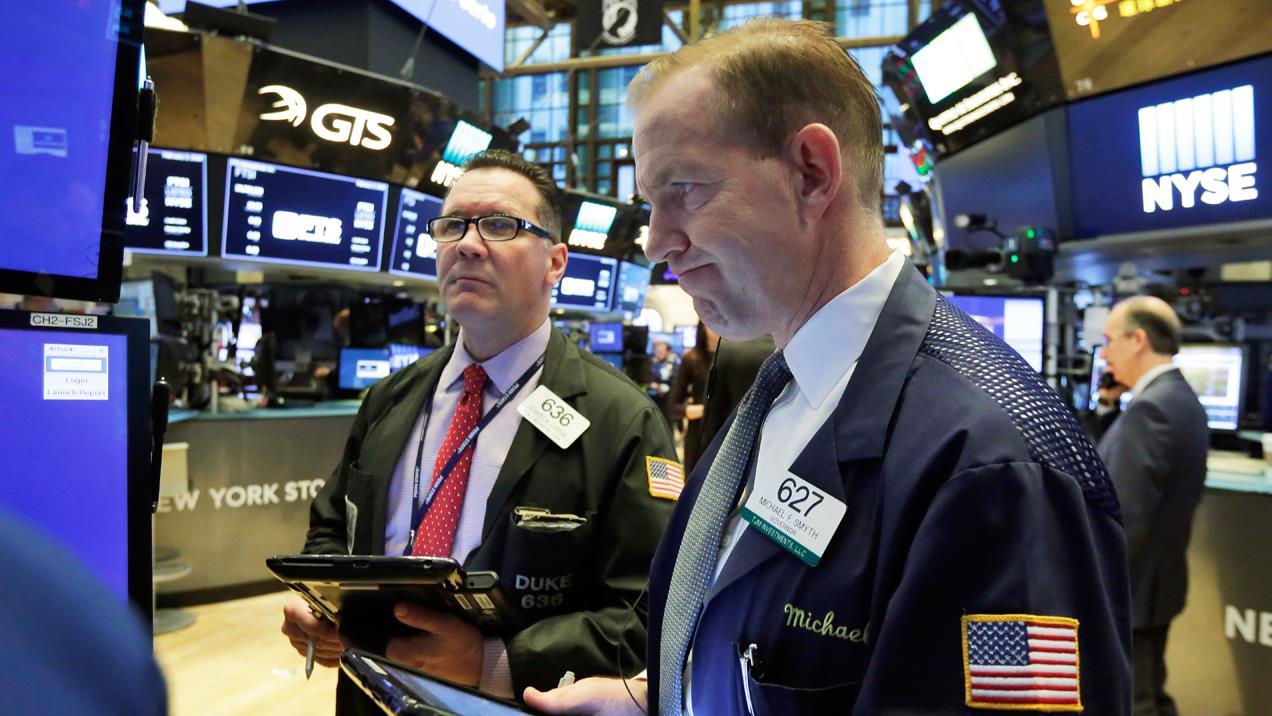Wall Street gets black eye as traders stampede out of tech
Stock investors started second-quarter trading on Monday by giving Wall Street a major black eye, pummeling tech company shares over antitrust and regulatory fears, trade war concerns and public animosity toward social media for mishandling personal data.
The share price rout snowballed across the broader market, wiping out billions of dollars in Americans’ savings accounts, such as IRAs and other tax-deferred savings vehicles. All three major indexes were in negative territory for the year.
"We're definitely seeing some market sentiment shifting, with tech and global companies feeling the brunt of it," said Ben Phillips, chief investment officer of EventShares.
On Monday, the Dow Jones Industrial Average closed down 1.9%, or 458.92 points, which almost matched the benchmark index's drop in the entire first quarter, when it tumbled 616 points. The Nasdaq sank 2.7%, or 193.33 points, but managed to escape a correction, closing less than 10% below its March 12 record closing high. The S&P 500 Index slid 2.2%, or 58.99 points.
Facebook's shares were down 2.8% and fell into a bear market, meaning a drop of 20% or more from a recent high. The social media company contended with the fallout from a leak that exposed the personal data of more than 50 million users.
Amazon fell more than 5%, or 75.35, its biggest point drop ever. It faced renewed criticism on Twitter from President Donald Trump, who alleged that the e-commerce giant was responsible for the shuttering of retailers across the nation.
Snap shares sank almost 9% as the social platform weathered criticism over its recent app redesign. Tesla fell more than 5% on production concerns. Chinese e-commerce company Alibaba lost 3.2%. Twitter, Intel and Cisco were also down in trading Monday. Trading volumes were light, with some global markets still closed. Lower volumes tend to result in bigger stock swings.
While investors may have been nervous watching the value of their 401(k)s and investment portfolios drop, many analysts cited a robust economy and saw the drop as an overreaction. Stocks pared their declines shortly before the close.
| Ticker | Security | Last | Change | Change % |
|---|---|---|---|---|
| AMZN | AMAZON.COM INC. | 204.86 | +0.07 | +0.03% |
| FB | PROSHARES TRUST S&P 500 DYNAMIC BUFFER ETF | 42.31 | -0.05 | -0.11% |
"We always recommend investors take a long-term view during wild rides like we’re seeing today,” said Mike Loewengart, vice president of investment strategy at E*Trade. “It’s important to keep in mind that days like today happen, and market moves likes this could be a new normal for a while. Let’s not forget that we’re coming off of nine straight years of virtually uninterrupted gains and historically low volatility."
He said that more than a few traders will look at today's plunge "as a buy-on-the-dip opportunity.
Adam Johnson, author of “Bullseye Brief,” told Fox Business’ Trish Regan during an interview on "The Intelligence Report" that he is a bull and that "on days like this he has his shopping list.”
Going into 2018, economists agreed that market volatility would pick up after an unusually quiet 2017. Many still expected a higher finish to the year.
Wells Fargo’s Investment Institute expects the S&P 500 will finish the year in the 2,800-2,900 point range, about 300 points higher than where it was trading on Monday.
In the first quarter, the Dow and S&P recorded a loss. The Dow shed 616.11 points, or 2.3%, during the three-month period, while the S&P lost 1.2%. The Nasdaq rose 2.3%, closing higher for the seventh quarter in a row. In commodities, West Texas Intermediate crude oil futures were under pressure on Monday. A contract gained more than 7% in the first quarter. Stocks' losses were good for gold, with futures up nearly 1.5%, building on their first-quarter advance.




















